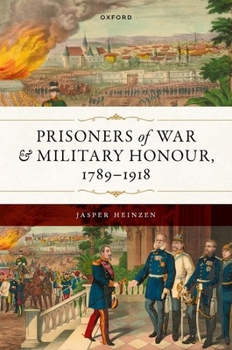Prisoners of War and Military Honour, 1789-1918
Early in the modern period, prisoners of war with the rank of officer or equivalent had the right to petition for parole. By effectively pawning their personal honour, they were able to purchase freedom of movement and other privileges-in-captivity. Increasingly, other ranks and civilians claimed a right to parole too. Based on material from close to thirty Australian, British, Dutch, French, German, and Swiss archives, Jasper Heinzen investigates the role and implications of honour-based agreements between prisoners of war and their captors in western European warfare. Across a range of ego documents, ministerial memoranda, the minutes of Masonic lodges, and prisoners' petitions, as well as a substantial body of published material, he demonstrates how captives, statesmen, and humanitarians understood honour in the 'long nineteenth century', how they negotiated national differences, and why parole d'honneur continued to matter as a code of conduct into the First World War. In so doing, the book demonstrates the dichotomy between 'good' codes of conduct prevalent in the eighteenth century and the practices of modern warfare--perpetuated by a substantial amount of scholarship--to be a false one. Explaining the longevity of parole in this novel way raises important questions about the so-called 'military Enlightenment', the excesses of the world wars, total war, and the practices and codes of modern warfare.
Format:Hardcover
Language:English
ISBN:0192871161
ISBN13:9780192871169
Release Date:May 2025
Publisher:Oxford University Press
Length:368 Pages
Weight:1.67 lbs.
Dimensions:1.1" x 6.4" x 9.5"
Related Subjects
HistoryCustomer Reviews
0 rating





